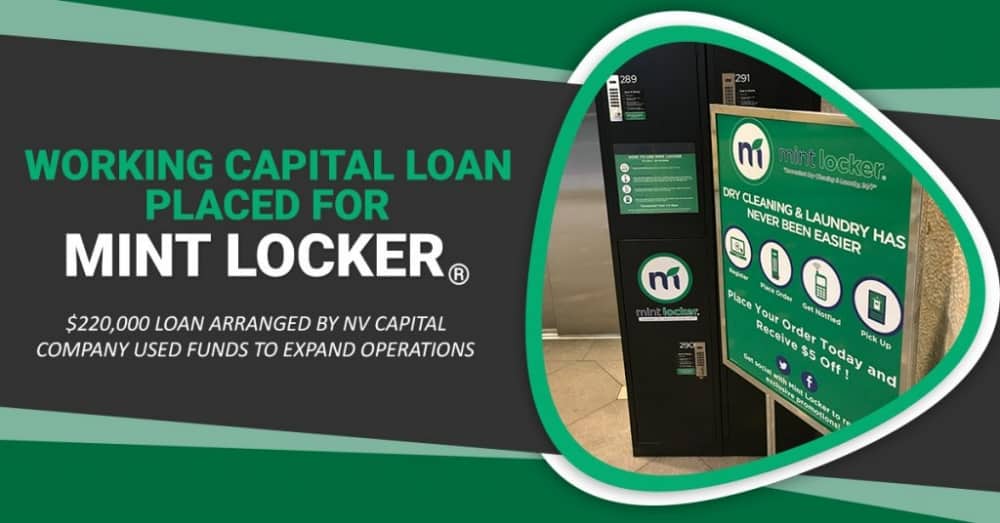The Role of Hard Cash Loans in Realty Purchases: What You Required to Know
Difficult cash financings are a pivotal financing tool in actual estate purchases. They provide capitalists fast access to resources, specifically in immediate scenarios. Safe by real estate, these financings concentrate on asset value as opposed to the debtor's credit report history. Nonetheless, they feature significant dangers and prices. Understanding the subtleties of hard cash lendings is important for any person looking to browse this intricate monetary landscape efficiently. What elements should investors consider before continuing?
What Are Tough Cash Fundings?
Difficult cash fundings act as an important financing choice in genuine estate transactions, particularly for financiers seeking fast accessibility to funding. Unlike traditional financings, hard money finances are protected by real estate and are primarily based on the value of the possession rather than the consumer's creditworthiness. These fundings are normally supplied by exclusive lending institutions or investors, enabling customers to bypass lengthy authorization procedures related to standard financing.
Tough money finances are usually temporary remedies, with settlement durations ranging from a couple of months to a few years. Because of their expedited nature, they are prominent amongst actual estate flippers and those requiring prompt funds for residential or commercial property purchase or rehabilitation. Rate of interest for hard money fundings have a tendency to be greater than typical car loans, showing the raised risk loan providers carry out. On the whole, tough cash finances accomplish a vital duty in the realty market, dealing with those that need flexibility and rate in their financing choices.
Benefits of Hard Cash Loans
While conventional funding can be cumbersome and slow-moving, hard money lendings offer a number of distinct benefits that interest genuine estate financiers. One essential advantage is the rate of the financing process; finances can typically be approved and moneyed within days, allowing financiers to seize possibilities swiftly. This rapid turn-around is particularly useful in competitive markets where time is essential.
Furthermore, tough money car loans are largely asset-based as opposed to credit-based, suggesting that investors with less-than-perfect credit can still protect financing. This availability allows a more comprehensive series of capitalists to engage in realty transactions.
Difficult cash loan providers typically have extra versatile terms and problems compared to traditional lending institutions, permitting for personalized payment plans tailored to private job demands. This versatility can boost a capitalist's capacity to handle money circulation effectively throughout remodelling or resale phases. Generally, these advantages make hard cash loans an engaging option for several realty ventures.
Prospective Disadvantages to Think About
While hard money financings can supply quick funding, potential downsides warrant mindful factor to consider. Debtors commonly face higher rates of interest contrasted to standard financing, which can raise general expenses. In addition, the shorter settlement terms might pressure borrowers to safeguard refinancing or sell the building faster than expected.
Higher Passion Rates
Greater rate of interest stand for a substantial consideration in tough cash financings, specifically in real estate transactions. These financings usually feature prices that are substantially more than traditional funding choices, usually ranging from 8% to 15%. This elevated expense can influence the general profitability of a real estate investment, as customers may locate themselves designating a bigger part of their spending plan to rate of interest repayments. Additionally, the high rates can produce difficulties for investors seeking to utilize their capital properly. For those that are not gotten ready for these economic implications, the problem of high-interest settlements can cause capital concerns, ultimately impacting the success of the building investment. Therefore, understanding the implications of greater interest prices is essential for potential consumers.
Shorter Payment Terms
Shorter settlement terms are a specifying characteristic of difficult cash fundings, which can provide various challenges for consumers. Commonly ranging from six months to three years, these terms call for debtors to pay back the lending promptly, typically resulting in economic stress. The pressure to produce returns within a restricted duration can press consumers to rush residential or commercial property renovations or sales, potentially jeopardizing the top quality of the financial investment. Additionally, the necessity of a swift exit technique may restrict choices for refinancing or selling, causing greater threats. Consumers must very carefully consider their economic abilities and market problems to stay clear of back-pedaling these fundings, which can lead to the loss of the collateralized residential property.
Just How Hard Cash Finances Function
Tough money loans operate with an unique framework that focuses on asset worth over creditworthiness. The approval procedure is normally swift, allowing debtors to accessibility funds rapidly contrasted to traditional funding. In addition, an examination of passion rates reveals that hard money financings typically lug greater costs, showing the boosted danger taken by lenders.
Financing Framework Discussed

In property transactions, recognizing the framework of difficult money loans is essential for investors seeking quick financing. Tough money financings are usually safeguarded by realty, with the residential property acting as security. These loans typically involve higher interest rates compared to traditional funding, reflecting the boosted danger taken by loan providers. The financing terms are usually brief, frequently ranging from 6 months to 3 years, assisting in fast access to resources. Financing quantities can vary substantially, typically depending upon the property's worth instead of the borrower's credit reliability. Financiers gain from the expedited authorization procedure, allowing them to seize financial investment possibilities immediately. Overall, the framework of difficult cash loans provides to those needing quickly, versatile financing alternatives in real estate markets.
Approval Process Overview
The authorization procedure for hard cash finances is unique from conventional borrowing approaches, mainly concentrating on the security instead of the borrower's credit report account. Lenders evaluate the value of the property being utilized as security, guaranteeing it fulfills their criteria for risk evaluation. When a property is recognized, debtors submit a finance application that consists of information regarding the residential or commercial property and the meant use funds (Georgia hard money lenders). The lending institution click here performs a fast assessment and might call for extra documents, yet the procedure is commonly quickened compared to conventional financings. Authorization typically takes place within days, enabling consumers to accessibility funds rapidly. This streamlined approach is useful genuine estate investors looking for fast funding options for acquisition or remodelling projects
Rate Of Interest Prices Contrast
While tough money lendings offer quick access to funds, their rate of interest are usually more than those of standard home loans. Borrowers can anticipate rates varying from 8% to 15%, relying on the loan provider and the specifics of the transaction. On the other hand, standard home loan rates typically fall in between 3% and 6%. The greater rates related to difficult money fundings reflect the increased danger loan providers take, as these lendings are commonly secured by the residential property itself as opposed to the consumer's creditworthiness. This means that while tough cash car loans can facilitate speedy funding genuine estate investments, they can additionally lead to considerably higher costs in time, making it crucial for customers to very carefully assess their economic situation before continuing.
When to Use Tough Cash Car Loans
When is it sensible to contemplate difficult money fundings in property transactions? Capitalists often take into consideration these car loans in circumstances where conventional funding is either impractical or unavailable. As an example, tough money fundings can be advantageous for residential properties calling for fast acquisition, such as repossession public auctions or distressed residential or commercial properties needing prompt renovations.
In addition, investor seeking to maximize time-sensitive opportunities, like flipping houses, may locate difficult money lendings beneficial because of their expedited approval process. Borrowers with less-than-perfect credit score or unique homes might additionally decide for difficult cash financing, as loan providers mostly concentrate on the residential property's value rather than the debtor's financial history.
Tips for Picking a Hard Money Lending Institution
Just how can investors ensure they choose the ideal difficult money lender for their real estate needs? Initially, detailed research study is crucial. Financiers must review possible loan providers by evaluating their experience, client, and reputation reviews. It is advisable to look for loan providers who specialize in the kind of residential property being financed, as this can enhance the likelihood of favorable terms.
Next, recognizing the lender's terms and problems is substantial. Financiers ought to ask about rates of interest, fees, and payment timetables. Transparent interaction is important; lenders ought to agree to clarify any type of uncertainties.
Additionally, reviewing the loan provider's funding rate and flexibility can be valuable, particularly in competitive markets. Capitalists should also think about constructing a rapport with the loan provider, as a great partnership can promote smoother transactions. Speaking with industry specialists or genuine estate agents can provide further insights and suggestions, guaranteeing an educated choice.
Often Asked Questions
Can Hard Money Loans Be Utilized for Business Residences?
Tough money financings can certainly be used for commercial homes, using fast funding alternatives for capitalists - Georgia hard money lenders. These loans are normally safeguarded by the building itself, allowing debtors to accessibility funds without typical lending needs
What Is the Typical Loan-To-Value Proportion for Hard Cash Loans?
The regular loan-to-value proportion for tough cash loans usually varies from 60% to 75%. This proportion differs based on the property kind, lending institution policies, and individual consumer conditions, mirroring the greater danger connected with these fundings.
Are Difficult Money Car Loans Available to Novice Homebuyers?
Hard cash lendings can be obtainable to new property buyers, though terms vary by lender. These financings typically have higher rate of interest and much shorter repayment periods, making them a much less conventional option for brand-new buyers.
Exactly How Quickly Can I Close on a Tough Cash Finance?
The rate of shutting on a hard money loan can differ, however normally it varies from a few days to a number of weeks, depending upon the loan provider's demands and the debtor's economic situation. (Georgia hard money lenders)
What Documents Are Required to Apply for a Tough Cash Funding?

Unlike typical fundings, tough cash car loans are secured by actual residential property and are largely based on the worth of the property rather than the consumer's credit reliability. Interest prices for tough money car loans tend to be greater than typical car loans, reflecting the raised threat loan providers embark on. The authorization process for tough money loans is unique from traditional lending approaches, mostly focusing on the security rather than the consumer's credit history profile. The higher prices connected with tough money loans show the raised risk lending institutions take, as these car loans are typically safeguarded by the building itself rather than the debtor's credit reliability. To apply for a difficult cash car loan, customers normally need to offer building information, a finance application, evidence of income, credit rating background, and identification.